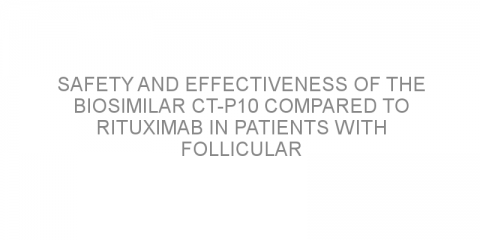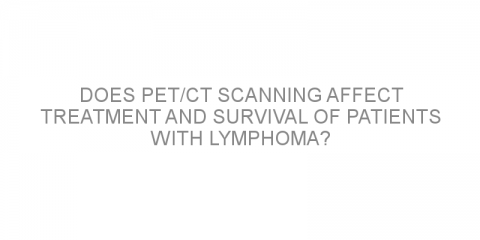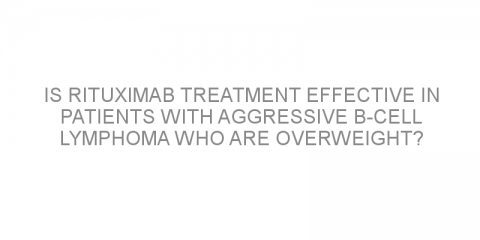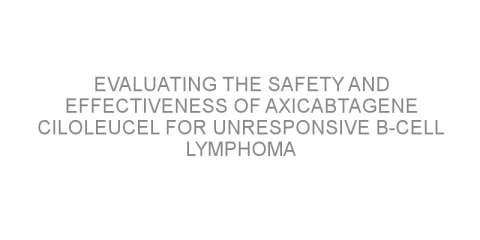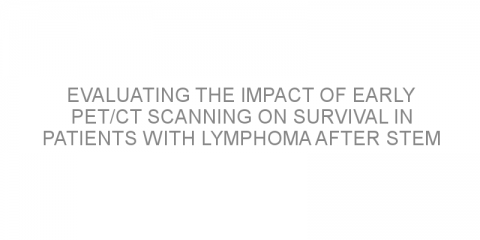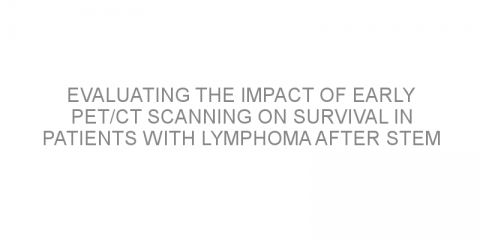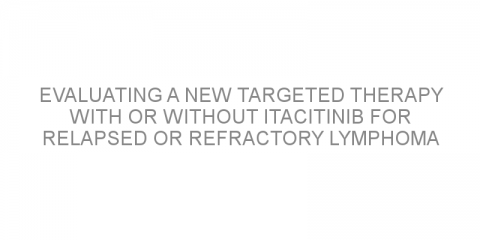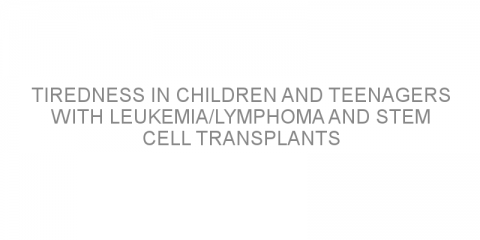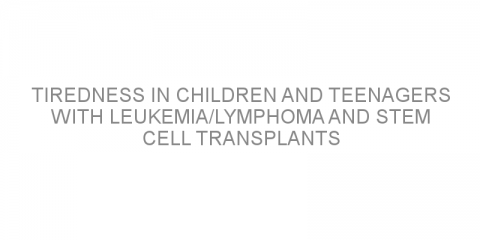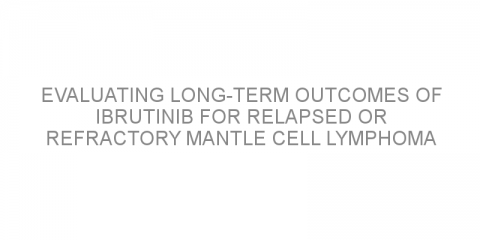In a nutshell This study looked at the safety and effectiveness of CT-P10 (Truxima) compared to rituximab (Rituxan) in the treatment of follicular lymphoma. Researchers found that CT-P10 had similar safety and effectiveness as rituximab in these patients. Some background Lymphoma is a cancer of the immune system. It is often treated with drugs...
Read MoreNon-Hodgkin lymphoma Posts on Medivizor
Risk of hepatitis B reactivation in patients with lymphomas receiving obinutuzumab or rituximab
In a nutshell This study looked at the risk of reactivating hepatitis B (HBV) infection in patients with lymphoma treated with obinutuzumab (Gazyva) or rituximab (Rituxan). Researchers found that HBV infection was reactivated in some of these patients but treatment options are available. Some background Lymphoma is a cancer of the immune system....
Read MoreDoes PET/CT scanning affect treatment and survival of patients with lymphoma?
In a nutshell This study examined the effect of PET/CT scanning on the treatment and survival of patients with lymphoma. Researchers found that PET/CT improved the management plan and survival of these patients. Some background PET/CT are types of scans that detect changes in cells and tissues inside the body. They can be used to check the sites of...
Read MoreIs rituximab treatment effective in patients with aggressive B-cell lymphoma who are overweight?
In a nutshell This study looked at the effectiveness of rituximab (Rituxan)-containing chemotherapy in the treatment of patients with B-cell lymphoma who are overweight. Researchers found that overweight patients treated with rituximab-containing treatment have improved outcomes. Some background B-cell lymphoma is a cancer of the immune system....
Read MoreEvaluating the safety and effectiveness of axicabtagene ciloleucel for unresponsive B-cell lymphoma
In a nutshell This study looked at the safety and effectiveness of axicabtagene ciloleucel (AC; Yescarta) in the treatment of unresponsive B-cell lymphoma. Researchers found that AC is a safe and effective treatment for these patients. Some background B-cell lymphoma is a cancer of cells in the immune system. It is treated with medication that targets...
Read MoreEvaluating the impact of early PET/CT scanning on survival in patients with lymphoma after stem cell transplant
In a nutshell This study evaluated the impact of early FDG PET/CT scanning on the survival of patients with lymphoma after allogeneic stem cell transplantation (alloSCT). This study concluded that having positive scan results at 3 months after alloSCT may highly predict relapse and poor survival in these patients. Some background An alloSCT is a...
Read MoreEvaluating the impact of early PET/CT scanning on survival in patients with lymphoma after stem cell transplant
In a nutshell This study evaluated the impact of early FDG PET/CT scanning on the survival of patients with lymphoma after allogeneic stem cell transplantation (alloSCT). This study concluded that having positive scan results at 3 months after alloSCT may highly predict relapse and poor survival in these patients. Some background An alloSCT is a...
Read MoreEvaluating a new targeted therapy with or without itacitinib for relapsed or refractory lymphoma
In a nutshell This study evaluated the safety and effectiveness of a new targeted therapy (INCB040093) with or without itacitinib in patients with relapsed or refractory (does not respond to treatment) lymphoma. This study concluded that this new agent was well-tolerated and showed promising effectiveness in these patients. Some background...
Read MoreTiredness in children and teenagers with leukemia/lymphoma and stem cell transplants
In a nutshell This study aimed to identify risk factors of tiredness in children treated for leukemia and lymphoma or who received a stem cell transplant. Researchers found that older age and active treatment were risk factors for developing severe tiredness in these patients. Some background Cancer treatment leads to severe tiredness (fatigue) over...
Read MoreTiredness in children and teenagers with leukemia/lymphoma and stem cell transplants
In a nutshell This study aimed to identify risk factors of tiredness in children treated for leukemia and lymphoma or who received a stem cell transplant. Researchers found that older age and active treatment were risk factors for developing severe tiredness in these patients. Some background Cancer treatment leads to severe tiredness (fatigue) over...
Read MoreEvaluating the impact of autoimmune conditions on the outcomes of patients with lymphoma
In a nutshell This study evaluated the impact of autoimmune conditions on the outcomes of patients with lymphoma. This study concluded that these conditions may negatively impact survival outcomes for these patients. Some background Autoimmune conditions are a group of diseases where the immune system attacks the body’s healthy tissues. One...
Read MoreEvaluating long-term outcomes of ibrutinib for relapsed or refractory mantle cell lymphoma
In a nutshell This study evaluated the long-term outcomes of ibrutinib (Imbruvica) treatment in patients with relapsed or refractory (does not respond to treatment) mantle cell lymphoma (MCL). This study concluded that ibrutinib is effective and well-tolerated in these patients. Some background MCL is a rare but aggressive type of non-Hodgkin’s...
Read More
